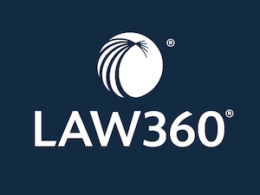The competition between Amazon.com and SpaceX is intensifying as they enter a new phase in their battle for supremacy in the space industry. This week marks an important milestone with the launch of the first Kuiper satellites into low Earth orbit. The satellites will be launched aboard a United Launch Alliance Atlas V rocket, which has the capability to carry payloads of up to 20 tons.
Amazon’s space-based Wi-Fi initiative, known as Project Kuiper or simply Kuiper, aims to provide Wi-Fi services to people on the ground by 2024. This ambitious venture puts Amazon in direct competition with SpaceX’s Starlink service, adding another dimension to the ongoing battle between billionaires Elon Musk and Jeff Bezos in the realm of space.
United Launch Alliance (ULA) is Boeing (BA) and Lockheed Martin’s (LMT) joint venture that seeks to challenge SpaceX’s dominance in the rocket launch business. While SpaceX’s Falcon 9 rocket has similar capabilities to the Atlas V rocket, SpaceX has the added advantage of being able to land and reuse the lower stage of their Falcon launch vehicle.
Elon Musk, the visionary founder and CEO of SpaceX, possesses a staggering net worth of approximately $250 billion, predominantly derived from his significant stake in Tesla (TSLA). Musk owns over 20% of Tesla, including his stock options. On the other hand, Jeff Bezos, the mastermind behind Amazon, holds a roughly 10% stake in the company, amounting to a total value of about $130 billion.
Bezos established his commercial space enterprise Blue Origin in 2000, nearly two years before SpaceX was founded. However, progress at Blue Origin has been slower compared to its competitor. Blue Origin focuses on commercial space tourism and holds contracts with both commercial and government entities. Notably, they have secured a deal with Amazon for 27 Kuiper launches. Additionally, Amazon relies on ULA, as well as Arianespace, for launching their satellites. Unlike SpaceX, Amazon lacks its own rockets, hence the need for multiple launch partners.
The battle for dominance in the space industry continues to unfold between these two iconic figures. With their immense wealth and groundbreaking ventures, Musk and Bezos spearhead a new era of innovation and exploration that will shape the future of space technology.
Blue Origin vs. SpaceX: A Comparison in the Space Launch Industry
Blue Origin, founded by Jeff Bezos, has yet to achieve orbital flight while its competitor, SpaceX, has taken the lead in the global space launch industry. With nearly 70 orbital missions successfully launched in 2023, SpaceX accounts for almost half of all global launches.
The majority of SpaceX’s launches this year have been dedicated to deploying its own Starlink satellites into orbit. Presently, there are approximately 4,800 Starlink satellites encircling the Earth, providing space-based Wi-Fi services to both businesses and individual customers.
As of the end of 2022, SpaceX had already acquired one million users. Considering the recent rate of user growth, it is anticipated that this number will double to two million by the close of 2023.
With two million users, Starlink is expected to generate annual revenue of at least $2 billion, experiencing an annual growth rate of around 100%. This increasingly profitable venture in space-based Wi-Fi has also captured the attention of Amazon.
Although the actual profitability of space-based Wi-Fi remains uncertain, SpaceX is projected to rake in billions in annual operating profit from both Starlink and its launch businesses. As a result, it is conceivable that the space company could achieve sales figures of $8 billion to $9 billion in 2023. However, due to SpaceX’s status as a private company, these figures cannot be definitively confirmed.
While these sales numbers may not significantly impact Amazon at this stage, the e-commerce giant is known for diversifying its presence across multiple industries. Amazon has already demonstrated its dominance in e-commerce and cloud computing through Amazon Web Services (AWS), which accounted for $22 billion of the company’s $134 billion revenue in the second quarter.
Similar to SpaceX’s aspirations, Amazon envisions a future where space plays a pivotal role in its business ventures. This alignment with the burgeoning space industry could potentially yield significant benefits for both companies.
Despite the impressive accomplishments of SpaceX, Amazon’s stock has experienced a slightly lower rate of growth, rising by approximately 9% over the past 12 months. In comparison, the S&P 500 and Nasdaq Composite have both achieved growth rates of approximately 15% and 21%, respectively.







